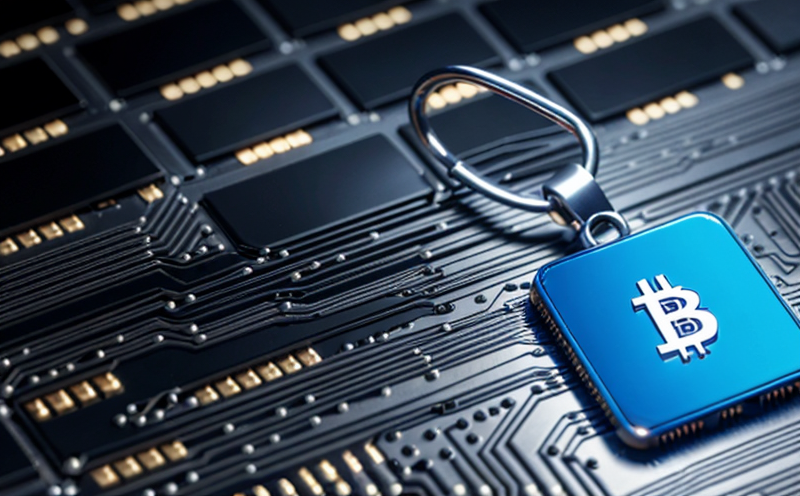PCI DSS Payment Card Security Compliance Testing in Blockchain Transactions
The Payment Card Industry Data Security Standard (PCI DSS) is a set of requirements designed to ensure that all companies that process, store, or transmit credit card information maintain a secure environment and protect sensitive information. In the realm of blockchain technology and FinTech, ensuring PCI DSS compliance in transactions is crucial as these systems handle vast amounts of payment data.
Blockchain networks, like any other system dealing with payment data, must adhere to PCI DSS standards to protect cardholder data from unauthorized access or breaches. This involves not only ensuring that the blockchain itself is secure but also that all nodes and clients connected to it are compliant. In this article, we will explore how PCI DSS compliance testing can be applied in a blockchain environment.
The process involves multiple layers of security checks and audits. These include encrypting sensitive data both at rest and in transit, implementing access controls, regular monitoring and logging, and ensuring that all personnel handling payment information are trained on the appropriate security measures. The use of smart contracts, which automate certain aspects of transactions, also requires thorough testing to ensure they do not introduce vulnerabilities.
The testing process involves several stages:
- Identification: Mapping out all components involved in the transaction flow that handle payment data.
- Configuration: Ensuring that each component is configured correctly according to PCI DSS guidelines.
- Testing: Running various tests to identify potential vulnerabilities, including penetration testing and vulnerability assessments.
- Auditing: Conducting internal audits to ensure compliance with all requirements.
The complexity of blockchain networks adds a layer of challenge when it comes to ensuring PCI DSS compliance. Smart contracts, for example, are self-executing agreements stored on the blockchain that automatically execute when predetermined conditions are met. Ensuring these smart contracts comply with PCI DSS can be challenging due to their distributed nature and the difficulty in controlling changes once deployed.
However, modern testing methodologies and tools have made it possible to apply PCI DSS compliance checks even in this complex environment. For instance, automated tools that scan smart contracts for vulnerabilities are being developed. These tools analyze the code for potential security flaws and ensure that all access controls are properly implemented.
| Component | Description | PCI DSS Compliance Check |
|---|---|---|
| Smart Contracts | Automated agreements on the blockchain | Ensuring code integrity, access controls, and encryption |
| Node Security | Endpoints connected to the blockchain network | Encryption of data in transit, secure configurations |
| User Access Controls | Permissions for users accessing payment data | Multifactor authentication, least privilege principle |
The importance of PCI DSS compliance testing in blockchain cannot be overstated. It ensures that sensitive payment information is protected from unauthorized access and breaches. This not only protects the financial health of businesses but also enhances consumer trust in these systems.
Why It Matters
The PCI DSS compliance testing for blockchain transactions matters because it ensures that sensitive payment information is protected from unauthorized access and breaches. In a world where cyber threats are constantly evolving, the need to secure payment data has never been greater.
- Consumer Trust: Ensuring compliance builds trust with customers who entrust their financial information to these systems.
- Legal Compliance: Failure to comply can result in significant legal and financial penalties for non-compliance.
- Risk Management: By identifying potential vulnerabilities early, businesses can mitigate risks before they escalate into full-fledged breaches.
The stakes are high when it comes to protecting payment data. A single breach can have far-reaching consequences, not just for the immediate financial loss but also for the long-term reputation of the company involved. Therefore, ensuring PCI DSS compliance is a non-negotiable requirement in any blockchain or FinTech project.
Why Choose This Test
- Comprehensive Coverage: The test covers all aspects of the PCI DSS requirements, ensuring that no area is overlooked.
- Expertise: Our team of experts has extensive experience in both blockchain technology and cybersecurity, providing unparalleled depth to your compliance efforts.
- Automation: Utilizing advanced automated tools for testing smart contracts and other components ensures efficiency and accuracy.
The PCI DSS Payment Card Security Compliance Testing service is designed to meet the specific needs of organizations operating in the blockchain and FinTech space. By choosing this test, you ensure that your system not only meets but exceeds the required standards, providing a robust defense against cyber threats.
Use Cases and Application Examples
The application of PCI DSS compliance testing in blockchain transactions is critical for several use cases. Here are some examples:
- E-commerce Platforms: Ensuring secure payment processing for online retailers.
- Banks and Financial Institutions: Protecting customer data during transactions.
- P2P Payment Systems: Securing peer-to-peer payments without central authorities.
| Use Case | Description | PCI DSS Compliance Check |
|---|---|---|
| E-commerce Platforms | Secure payment processing for online retailers | Data encryption, access controls |
| Banks and Financial Institutions | Protecting customer data during transactions | Encryption of sensitive information, secure configurations |
| P2P Payment Systems | Securing peer-to-peer payments without central authorities | Data integrity, least privilege principle |
In each case, the focus is on ensuring that sensitive payment information is handled securely and in compliance with PCI DSS standards.





